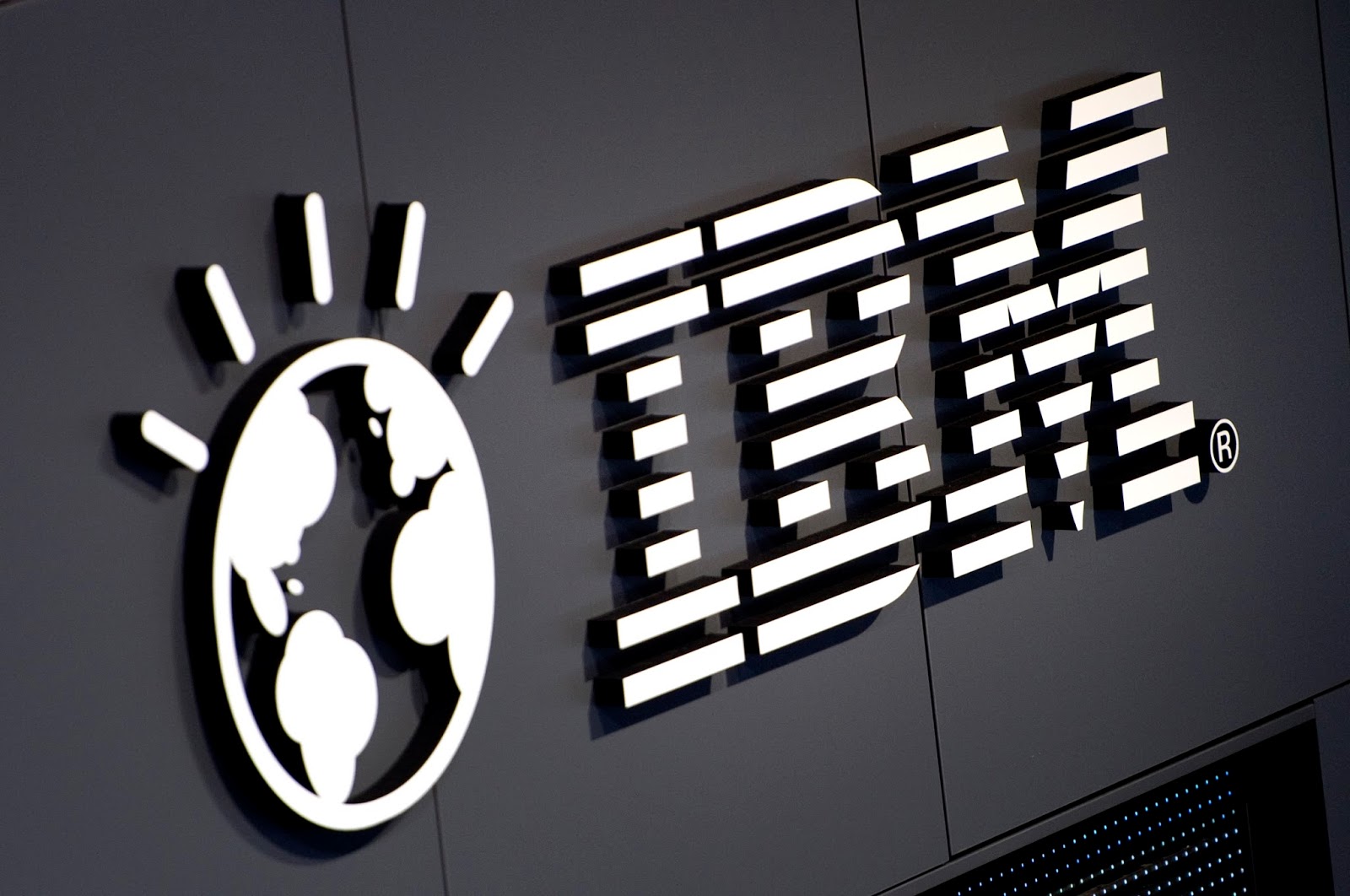Search Results For: ibm

IBM Blockchain Oil trade platform: a new innovative project
IBM – together with a group of other companies – has announced the development of a new blockchain-based crude oil trade finance platform.
This group also includes Trafigura and Natixis bank that decided to join the creation of this new tool.
The platform was created by using code from the Linux Foundation-led Hyperledger project. Also, IBM’s BlueMix cloud hosting service is utilized.
Thanks to this trade finance platform, users can view transaction data on the blockchain that also hosts documentation and updates on shipments, deliveries and payments.
Natixis is also a member of the R3 distributed ledger consortium and isn’t new to blockchain-related trade finance applications because it also joined the “Digital Trade Chain” project a few months ago.
According to, Natixis’ head of global energy and commodities, Arnaud Stevens, the bank believes the technolgy as a high potential of bringing down expense and boosting procedural transparency.
These are his words:
“We want to use blockchain to optimize the antiquated arena of commodity trade finance. The current process is paper and labor intensive, we have multiple friction points with high processing costs and limited automation. Distributed ledger technology brings some much-needed innovation into our industry.”
This news is only the latest related to projects that aims at bridging of the blockchain and trade finance worlds.
Also, we have to say that this is an application that attracted much interest from a wide range of companies and governments worldwide, including Dubai.
In the meantime there are also several other worldwide banks that are continuing to push ahead with related projects focused on the blockchain and commodities trade.
A few days ago, in fact, Dutch bank ING is working on an oil trading pilot built on the Ethereum blockchain that has already conducted live transactions.
Open your free digital wallet here to store your cryptocurrencies in a safe place.

Thailand Bank tests Blockchain with IBM
Thailand bank tests blockchain to certify official documents. To do so, it is is working with the IBM company.
According to Reuters magazine, in fact, Kasikornbank wants to cut costs related to record keeping.
The bank is one of the most important in Thailand and it is looking to create a document certification service by next year.
Also, Kasikornbank is talking with other Thai banks with the goal of establishing new collaborations that could involve a few members of the national financial system. According to the current plan, other banks together with Kasikornbank could use the blockchain network to certify documents.
In a press release published back in April, Kasikornbank revealed its decision to study and test new technologies, including machine learning and the distributed ledger.
At the time, the Thai bank explained that blockchain is “a technology that offers other benefits, e.g., reducing costs and increasing cross-border settlement efficiency that can be verified”.
This news also represented a turn within the Thai country, as two years ago the specter of a bitcoin ban in Thailandia led to problems for the local exchange activity.
After that, Thailand decided not to ban digital currencies, but published a warning to its citizens about their use.

Open your free digital wallet here to store your cryptocurrencies in a safe place.
IBM Blockchain to solve delivery issues
Singapore startup FreshTurf is working on a IBM Blockchain project to develop a network for solving issues related to delivery and storage lockers.
According to a press release, the two companies wants to create a network to track delivery shipments and storage lockers through the blockchain with the objective of providing a faster and safer service to the customers.
This way, in fact, users will be able to track their packages more easily thanks to a distributed ledger platform.
This is not the first project for the IBM’s BlueMix garage, a wordwide network of innovators that provides a hub for startups and companies to test and study the blockchain.
The BlueMix is a part of IBM blockchain broader strategy for fintech applications.
The two companies commented in a press release that their goal is providing a system for clients to check the status of their packages in real time.
“Not only can the application of blockchain technology help provide visibility across the fulfilment chain, allowing users to track their parcel and delivery status from the convenience of their phone, it can help stakeholders to conduct shipping transactions in a highly secure and trusted environment.”
This distributed system, currently in development, works through the IBM blockchain.
It is not still clear if the companies will sell the technology for commercial use.
IBM Blockchain and Australian Postal Service
Blockchain has been used for several use cases, including package delivery.
In fact, Australian Postal Service released a report explaining how they could use the distributed ledger to track packages movements. Read more about Australian Postal Service new project by clicking here.
Also, US Postal Service discussed its idea to create a new digital currency called PostCoin.
And this is not the first time IBM works on a blockchain-related project. Read more news about the IBM Blockchain here.
Open your free digital wallet here to store your cryptocurrencies in a safe place.
IBM announces its new cloud Blockchain Security Service
Cloud Blockchain Security Service
Open your free digital wallet here to store your cryptocurrencies in a safe place.

IBM blockchain project for identity verification
IBM Blockchain for identity confirmations
Banks and blockchain applications
Universal Wallet for Cryptocurrencies

The blockchain is the technology behind the cryptocurrency called bitcoin. To store your bitcoins you need a safe and easy-to-use wallet.
Our innovative system allows you to store not only bitcoin but also several different kinds of digital currencies such as Ethereum, Dogecoin, Litecoin, Blackcoin and more.
To open your wallet for free, and to read more about the HolyTransaction wallet, click here.
Open your free digital wallet here to store your cryptocurrencies in a safe place.

IBM Watson uses the Blockchain in Singapore

IBM Watson and blockchain
Also, at the beginning of 2016, Chris Ferris, CTO at IBM, became the project leader of the aforesaid open-source blockchain project.
Open your free digital wallet here to store your cryptocurrencies in a safe place.

Artificial intelligence connected to the blockchain thanks to IBM
IBM invests in the Internet of Things
Previous statement
Open your free digital wallet here to store your cryptocurrencies in a safe place.

‘We’re All in on Blockchain’, says IBM
“We are all in on Blockchain”: these were the words of IBM Director John Wolpert during the today Blockchain Conference in San Francisco. According to Wolpert the blockchain needs a more collaborative approach, which is not always guaranteed by the blockchain developers.
Open your free digital wallet here to store your cryptocurrencies in a safe place.
Richard Brown, executive architect, IBM thinks the future for crypto-currencies looks very bright.
Bitcoin, the world’s first decentralised digital currency, entered mainstream consciousness this year: Bitcoin-focused startups are accessing venture capital and industry commentators talk about it as an important international payment mechanism of the future. But are we interpreting its significance too narrowly? In this video, Richard Brown, IBM Executive Architect for Banking and Financial Markets Industry Innovation, argues that Bitcoin’s true significance lies in its potential as a global digital asset register and in the lessons it teaches us for design of complex distributed systems. He also explains why recent law-enforcement action against operators of illegal websites that transacted in Bitcoin will help accelerate adoption by legitimate businesses.”
Open your free digital wallet here to store your cryptocurrencies in a safe place.

Investigating the use of blockchain technology in digital identity management
Blockchain Technology and its Potential in Digital Identity Management
Digital identity management is a crucial aspect of our digital lives, as it enables us to prove our identities online and access a wide range of services. However, current digital identity management systems are often centralised and controlled by a few large corporations, which can lead to issues such as data breaches and lack of control over personal information. Blockchain technology has the potential to revolutionise digital identity management by creating a decentralised, secure, and user-controlled system.
Blockchain technology is a decentralised, digital ledger that records transactions across a network of computers. It is the technology behind the popular cryptocurrency, Bitcoin, but its potential uses go far beyond just financial transactions. One of the key features of blockchain technology is its ability to enable secure and transparent transactions, without the need for a central intermediary.
In digital identity management, blockchain technology can be used to create a decentralised system, where users have complete control over their personal information and can prove their identities without relying on a central authority. This would allow for greater security and privacy, as personal information would be stored on the blockchain and protected by cryptographic techniques. Additionally, the use of blockchain technology would increase transparency, as all transactions and changes to personal information would be recorded on the blockchain, creating an auditable and immutable record.
OpenTimestamp and Digital Identity
The importance of OpenTimestamp in digital identity management cannot be overstated. OpenTimestamp is an open-source protocol that enables secure and verifiable time-stamping of data in the blockchain. This means that it can be used to create a tamper-proof record of a user’s digital identity, making it more difficult for others to manipulate or alter the data. This added security and trust will further contribute to the success and widespread adoption of blockchain-based digital identity management systems.
Decentralised Identity Management
A decentralised digital identity management system would allow for greater control over personal information, as users would be able to store and manage their own personal information, rather than relying on a central authority. This would also increase security, as personal information would be stored on the blockchain and protected by cryptographic techniques. Additionally, a decentralised system would be more resilient to data breaches and cyber attacks, as there would be no central point of failure.One of the key benefits of a decentralised digital identity management system is that it would allow for greater interoperability between different systems and platforms. This would enable users to prove their identities across a wide range of services, without the need to create multiple identities or share personal information with multiple organisations.
Self-Sovereign Identity
Another potential use of blockchain technology in digital identity management is the concept of self-sovereign identity. This would allow users to have complete control over their personal information and use it to prove their identities across a wide range of services. This would be done through the use of digital identity credentials, which are stored on the blockchain and can be used to prove identity without the need for a central intermediary. The use of blockchain technology in self-sovereign identity would also increase transparency and trust in the digital identity management system, as all transactions and changes to personal information would be recorded on the blockchain, creating an auditable and immutable record. This would help to prevent fraud and manipulation in the digital identity management system, and increase trust among users.
Conclusion
Blockchain technology has the potential to revolutionise digital identity management by creating a decentralised, secure, and user-controlled system. This would allow for greater control over personal information, increase security and privacy, and enable users to prove their identities across a wide range of services. While the technology is still in its early stages, the potential benefits of blockchain technology in digital identity management are clear, and it will be interesting to see how it develops in the coming years.
Open your free digital wallet here to store your cryptocurrencies in a safe place.

